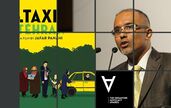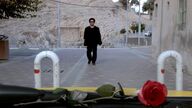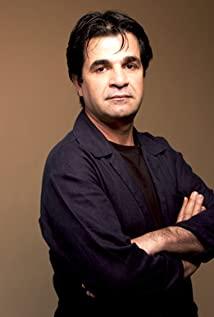This is a film directed and acted by director Jafar Panasi. The director in the film uses his own name to integrate with the reality of his own experience. For example, he was imprisoned for six years for some crimes by the country. Express what exists. Looking back carefully, there were nine people in the car, each representing almost a type of person in Iranian society. Among them are teachers and thieves arguing about the death penalty for crimes; peddlers selling pirated CDs; a man in a car accident and a woman crying; a directing student who is confused about film creation; two superstitious old people; "The niece of the director" is a curious elementary school student; "the director's old neighbor" reporter; to visit the female lawyer in prison. The film shows the social status quo in Iran to a certain extent, such as the debate on the death penalty; the legal discrimination against women's interests; the state's control of human rights, many films are banned and cannot be released in Iran; the superstition that uses the life of a goldfish to prolong one's own life Thoughts; the various "restrictions" that elementary school teachers place on students' filming, what can and cannot be filmed. It also satirizes Iran's extremely strict film censorship system. In the process of watching a movie, there will always be doubts about "is this a documentary or a movie", are they actors or ordinary people? Perhaps this is the director's brilliance, showing the social style in the most direct way of recording.
Overall, this is a very socially realistic film. Based on life, it reflects the ugly malpractices of society, and also conveys the preparedness to fight and the pursuit of justice in the face of this society. The film begins and ends with a very simple street scene with the front of the car flowing, the only difference is that a rose appears on the dashboard at the end, as the female lawyer said, this is so realistic for the filming A kind of support for filmmakers of meaning theme.
View more about Taxi reviews







